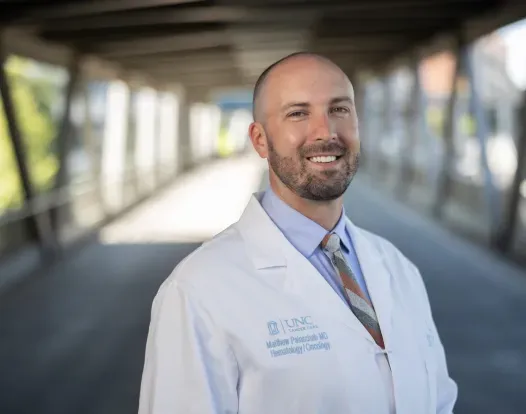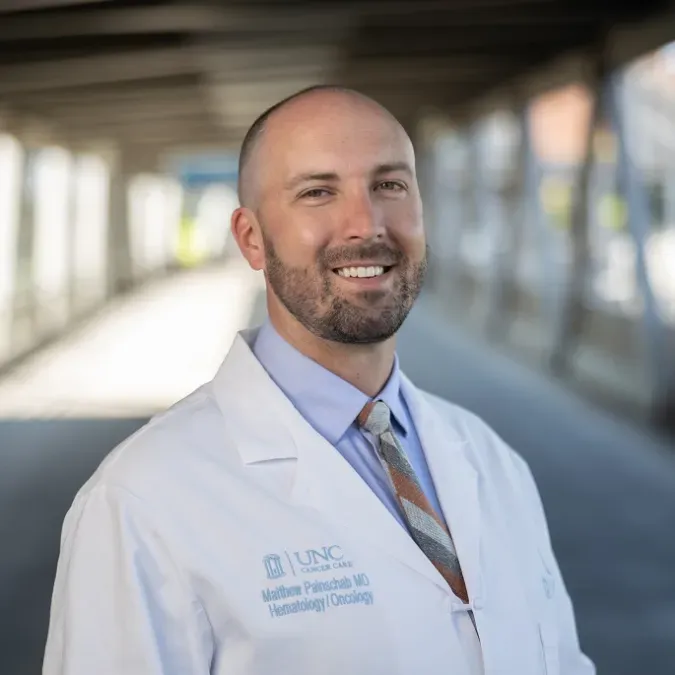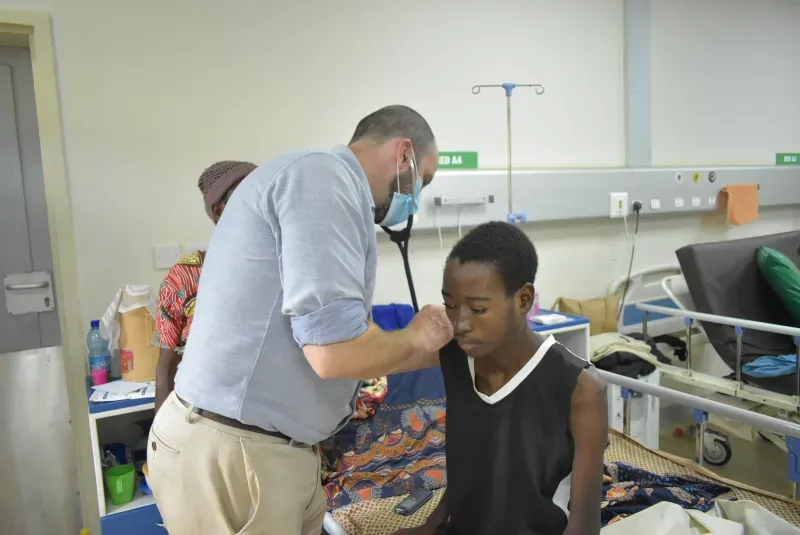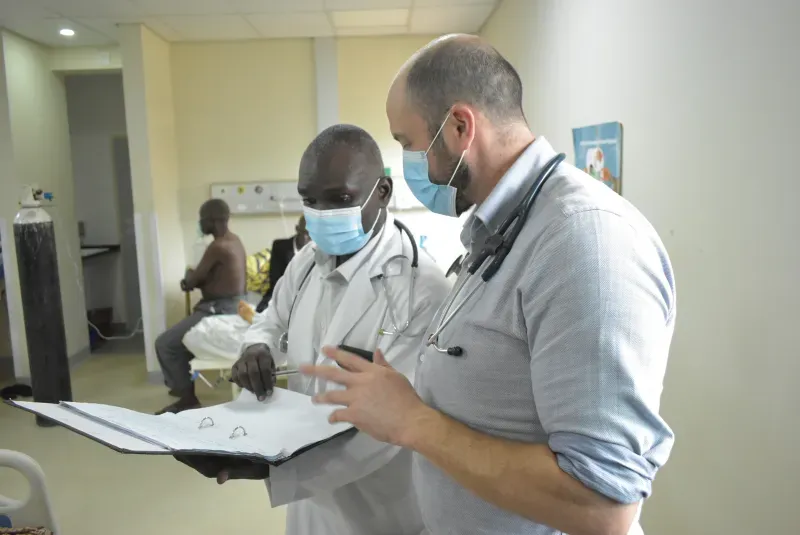These researchers have dedicated their careers to finding new treatments and cures for people with cancer.


For patients in chemotherapy for blood cancers, the risk of developing fever and infections is higher. It's also more lethal.
In places like Malawi, that risk can be even worse. Many people there live more than four hours from the nearest cancer clinic — that risk can be even worse. Antibiotic resistance there has grown more common, both there and throughout sub-Saharan Africa. It's also grown more deadly.
It’s exactly the problem that oncology researcher Dr. Painschab hopes to solve. As an assistant professor of medicine at the University of North Carolina at Chapel Hill, his research focuses on improving patient outcomes through infection management and by addressing antibiotic resistance.
He also spends much of his time in Malawi, where he’s one of only two blood cancer specialists in the country.
Blood Cancers, Infections, and the Antibiotic Imperative
Even for healthy people, infections can be scary. But they're even more so for patients with cancer. The danger multiplies with antibiotic resistance. How can you fight an infection if the strongest tools at your disposal aren’t effective?
A lack of data about the causes and outcomes of fever in chemotherapy patients complicates things further.
Finding infection-causing bacteria is critical, Dr. Painschab says. Doing so allows doctors to treat them with the right antibiotics. Unfortunately, in many parts of the world, antibiotics are overprescribed, increasing antibiotic resistance. As a result, patients with cancer risk more exposure to more resistant bacteria.
Despite the challenges, blood cancers are highly curable. Diagnosis is fairly easy and inexpensive, and standard chemotherapy is often successful. By mitigating treatment-related infections with antibiotics, doctors could potentially improve care for patients. But first, Dr. Painschab explained, antibiotic resistance and infection management must improve.
“Training the next generation of clinicians and scientists will have profound impacts for this area of cancer research with a dearth of data,” he says.
Addressing Antibiotic Resistance
In 2018, Dr. Painschab received a Conquer Cancer grant. Using this funding, he began a clinical study into the causes, prevalence, and survival rates of fever in chemotherapy patients.
The funding allowed Dr. Painschab to hire a team to monitor patients’ vital organs. He also used the funding to look for bacteria that needed alternative antibiotics. Through this research, he showed that bacterial infections and malaria are important causes of fever for patients undergoing chemotherapy in Malawi. Both, he says, need to be adequately investigated for and treated.
The sample size of the current project wasn’t large enough to confirm the best antibiotics for preventive care. But Dr. Painschab believes that by collaborating with local groups also working on antibiotics research, and by larger projects in the future, a better treatment approach is possible for patients in Malawi and around the world.
Future Impact for Patients
Research-driven treatments set the stage for better care in the future. This makes the potential impact of this promising work immense.
After Dr. Painschab and his team connected a patient with lymphoma to the right antibiotics, her outcomes improved. That patient has since completed chemotherapy and shows no signs of cancer recurrence. Discovering the bacterial resistance likely saved her life, Dr. Painschab says.
“Patients here in Malawi are always extremely grateful for the benefits they receive from our research," he says. "And we're grateful for their willingness to take part and contribute to the knowledge base for future generations of patients.”
Following his Conquer Cancer-funded project, Dr. Painschab received a grant from the National Institute of Health. The funding has allowed him to live and work in Malawi and continue his research.
“This Conquer Cancer-supported project was the first opportunity that I had to develop my own research project from beginning to end,” Dr. Painschab says. “Donor-funded research can often be more high-risk and innovative and really help push the envelope. This type of early stage, novel research is critical for new developments in the field.”



